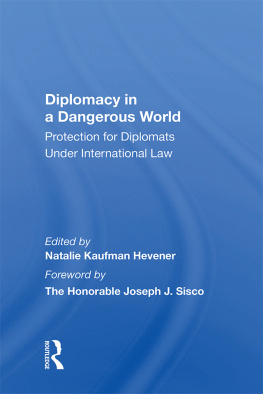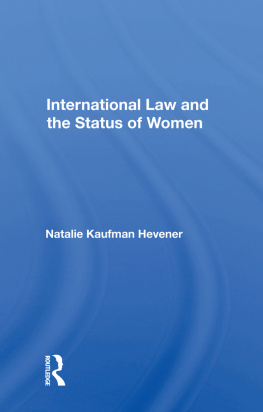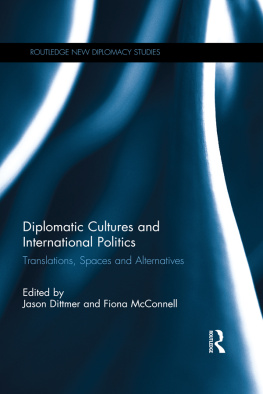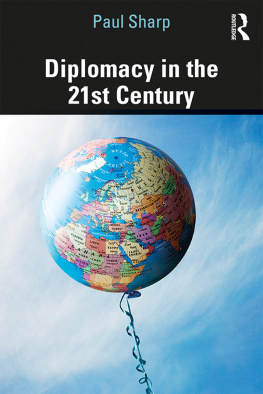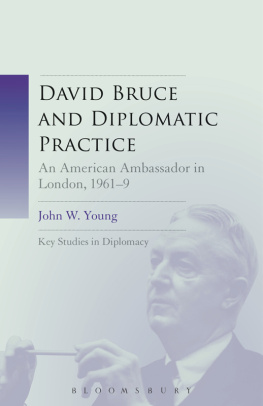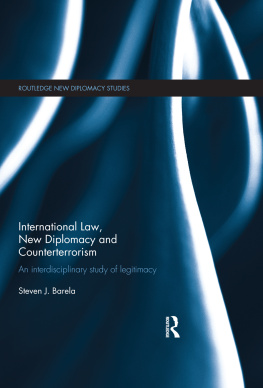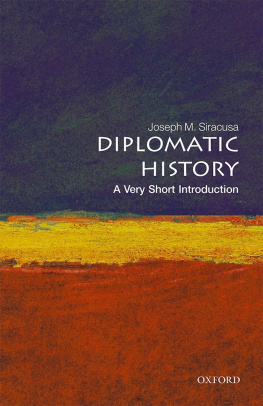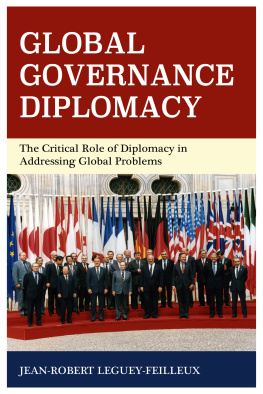Diplomacy in a Dangerous World
Westview Special Studies
The concept of Westview Special Studies is a response to the continuing crisis in academic and informational publishing. Library budgets are being diverted from the purchase of books and used for data banks, computers, micromedia, and other methods of information retrieval. Interlibrary loan structures further reduce the edition sizes required to satisfy the needs of the scholarly community. Economic pressures on university presses and the few private scholarly publishing companies have greatly limited the capacity of the industry to properly serve the academic and research communities. As a result, many manuscripts dealing with important subjects, often representing the highest level of scholarship, are no longer economically viable publishing projectsor, if accepted for publication, are typically subject to lead times ranging from one to three years.
Westview Special Studies are our practical solution to the problem. As always, the selection criteria include the importance of the subject the work's contribution to scholarship, and its insight, originality of thought, and excellence of exposition. We accept manuscripts in camera-ready form, typed, set, or word processed according to specifications laid out in our comprehensive manual, which contains straightforward instructions and sample pages. The responsibility for editing and proofreading lies with the author or sponsoring institution, but our editorial staff is always available to answer questions and provide guidance.
The result is a book printed on acid-free paper and bound in sturdy library-quality soft covers. We manufacture these books ourselves using equipment that does not require a lengthy make-ready process and that allows us to publish first editions of 300 to 1000 copies and to reprint even smaller quantities as needed. Thus, we can produce Special Studies quickly and can keep even very specialized books in print as long as there is a demand for them.
About the Book and Editor
The dramatic increase in attacks on diplomatic personnel that began in the 1970s has now reached alarming proportions. Events such as the long detention of U.S. diplomats in Iran, the embassy bombings in Lebanon, and the numerous assassinations of foreign service officials around the world have heightened global tensions. Because diplomatic exchange is one of the oldest practices protected by international law, a major approach to the problem has been to search for new international legal arrangements. In this volume, contributors identify the political and legal issues surrounding the codification of the law of diplomatic protection. They offer an analysis of the seriousness of the security issue for diplomats, the impact of this form of violence on the international community, the reasons for the increase in diplomatic attacks, and the theoretical and practical problems of negotiating stronger and more comprehensive international arrangements for improving security for diplomats, their families, and their staffs. The authors also present an overview of the present level of international accord as reflected in the treaties in place in contemporary international relations. In addition, the volume contains a complete set of the relevant legal documents including the background, text, and a table of signatures and ratifications for each.
Dr. Natalie Kaufman Hevener is associate professor in the department of government and international studies at the University of South Carolina. She is the author of International Law and the Status of Women (Westview, 1983).
To my parents
Diplomacy in a Dangerous World
Protection for Diplomats Under International Law
edited by
Natalie Kaufman Hevener
Foreword by
The Honorable Joseph J. Sisco
First published 1986 by Westview Press, Inc.
Published 2018 by Routledge
52 Vanderbilt Avenue, New York, NY 10017
2 Park Square, Milton Park, Abingdon, Oxon OX14 4RN
Routledge is an imprint of the Taylor & Francis Group, an informa business
Copyright 1986 Taylor & Francis
All rights reserved. No part of this book may be reprinted or reproduced or utilised in any form or by any electronic, mechanical, or other means, now known or hereafter invented, including photocopying and recording, or in any information storage or retrieval system, without permission in writing from the publishers.
Notice:
Product or corporate names may be trademarks or registered trademarks, and are used only for identification and explanation without intent to infringe.
Library of Congress Cataloging-in-Publication Data
Hevener, Natalie Kaufman.
Diplomacy in a dangerous world.
(Westview special studies in international
relations)
1. DiplomatsProtection. I. Title. II. Series.
JX1683.P7H48 1986 341.3'3 85-26627
ISBN 13: 978-0-367-00583-2 (hbk)
Contents
, Joseph J. Sisco
, Paul M. Kattenburg
, John Lawrence Hargrove
, Natalie Kaufman Hevener
Guide
The United States is committed to the rule of law. We were a principal architect of the United Nations and its political, economic, social, and judicial infrastructure. We are not a power that does or can use force indiscriminately. While forceable means cannot be excluded in coping with terrorism, we nevertheless continue to give emphasis to bringing to justice perpetrators of terrorist crimes against innocent victims, and the Achille Lauro case is the latest evidence. This book, therefore, concentrating on the legal approach, its precedents, and its capacities and limitations in coping with international terrorists, is relevant and timely. International terrorism will remain a prominent feature of the global landscape for the foreseeable future, and legal remedies will continue to be tested.
The United States has taken the lead in helping to organize unilateral, bilateral, and multilateral methods in coping with terrorism. Outstanding U.S. officials are serving selflessly and professionally overseas in increasingly difficult environments and danger. A major improvement in the physical security of United States embassies abroad is in train. We are improving our collection, analysis, and dissemination of intelligence information.
We have utilized and continue to give heavy emphasis to strengthening the legal means available to states, individually and collectively, to cope with the problem. These include: The Hague convention on aircraft hijacking; the Montreal convention on aircraft sabotage; UN conventions against murder, kidnapping, and other attacks against diplomats and the taking of hostages; and the 1978 declaration issued in Bonn by the seven economic summit countries that provides for concerted action against states that fail to take appropriate legal action against hijackers.
The problem of terrorism is primarily political, and traditional international law, while important and relevant, is unfortunately inadequate. As a former diplomat, I particularly welcome the emphasis of Diplomacy in a Dangerous World on the security of our official representatives, on the law of diplomatic protection, and the role of the underused International Court of Justice. However, in the long run, only fundamental political solutions can ameliorate the problem significantly.
Joseph J. Sisco
Former Under Secretary of
State for Political Affairs

